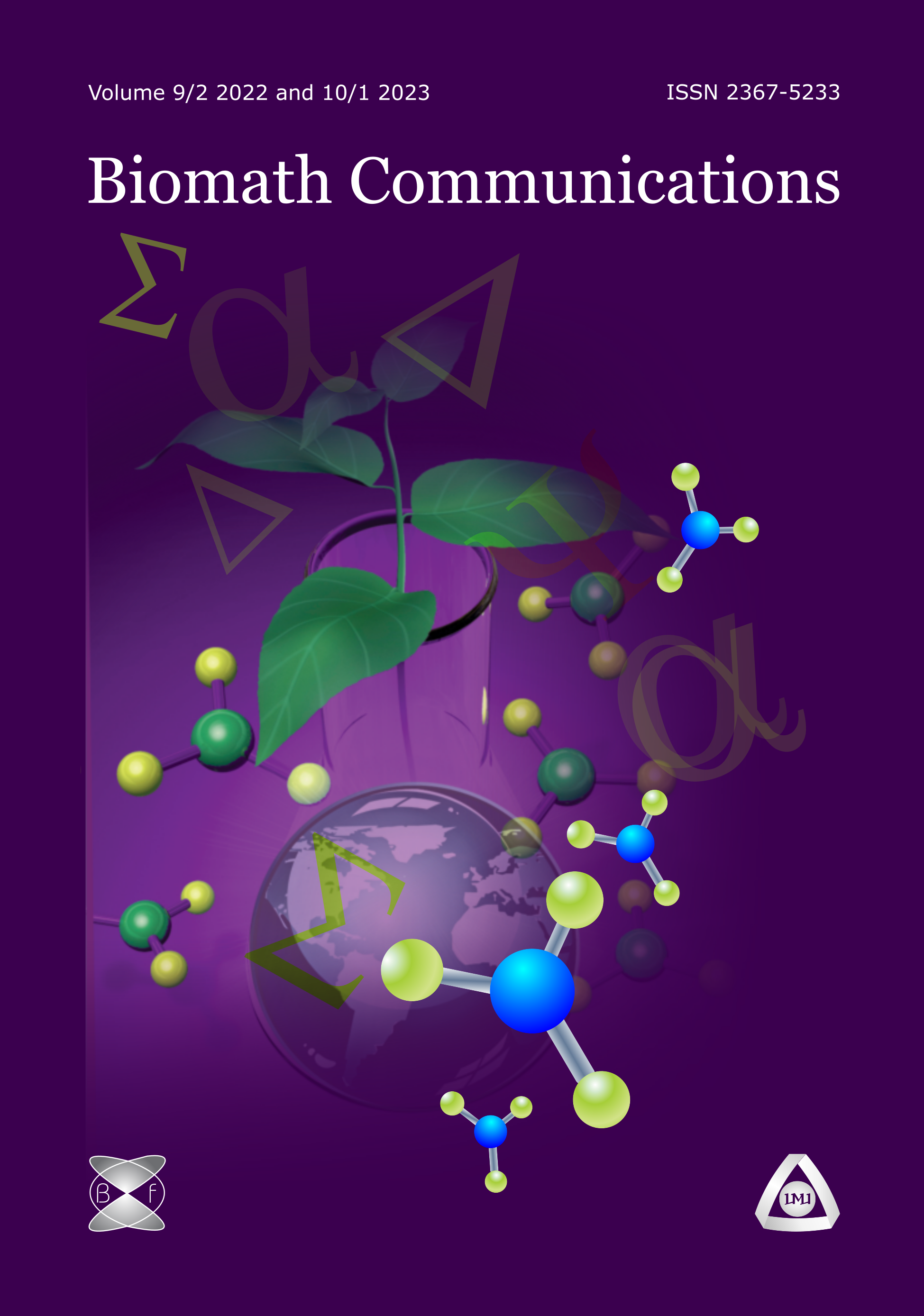Contributions to Constructive Treatment of SIS-Type Models I: Nonstandard Schemes for Diffusion and Non-Diffusion Models
DOI:
https://doi.org/10.11145/259Abstract
This work is divided in two parts.
In the first part, we construct and investigate the reliability of various NSFD schemes for diffusion and space-independent models. We consider two new NSFD schemes for the SIS-ODE model, which faithfully replicate the property of the continuous model of having the value R_{0}=1 of the basic reproduction parameter as a forward bifurcation: the disease-free equilibrium (DFE) is globally asymptotically stable (GAS) when R_{0}<1; it is unstable when R_{0}>1, В and there appears a unique locally asymptotically stable (LAS) endemic equilibrium (EE) in this case.The schemes are further used to derive NSFD schemes that are dynamically consistent with the positivity and boundedness properties of the SIS-diffusion model.
In the second part, the contact rate is a function of the infective population and we incorporate a distributed infective period. The resulting SIS-model is a Volterra integral equation of the second kind. The qualitative analysis is now based on two threshold parameters Rc_{0} < 1 < Rm_{0} and the system can undergo the backward bifurcation as follows. The DFE is the only equilibrium and it is GAS when R_{0} < Rc_{0}; there exists only one EE, which is LAS when R_{0} > Rm_{0} with the DFE being unstable when R_{0} > 1; for Rc_{0} < R_{0} < 1; the DFE is LAS and co-exists with at least one LAS endemic equilibrium. We design a NSFD scheme that preserves positivity and boundedness of the solution as well as the above-stated stability properties of equilibria. Numerical simulations that support the theory are provided.
Downloads
Published
Issue
Section
License
The journal Biomath Communications is an open access journal. All published articles are immeditely available online and the respective DOI link activated. All articles can be access for free and no reader registration of any sort is required. No fees are charged to authors for article submission or processing. Online publications are funded through volunteer work, donations and grants.
Authors who publish with this journal agree to the following terms:
- Authors retain copyright and grant the journal right of first publication with the work simultaneously licensed under a Creative Commons Attribution License 4.0 that allows others to share the work with an acknowledgement of the work's authorship and initial publication in this journal.
- Authors are able to enter into separate, additional contractual arrangements for the non-exclusive distribution of the journal's published version of the work (e.g., post it to an institutional repository or publish it in a book), with an acknowledgement of its initial publication in this journal.
- Authors are permitted and encouraged to post their work online (e.g., in institutional repositories or on their website) prior to and during the submission process, as it can lead to productive exchanges, as well as earlier and greater citation of published work (See The Effect of Open Access).

